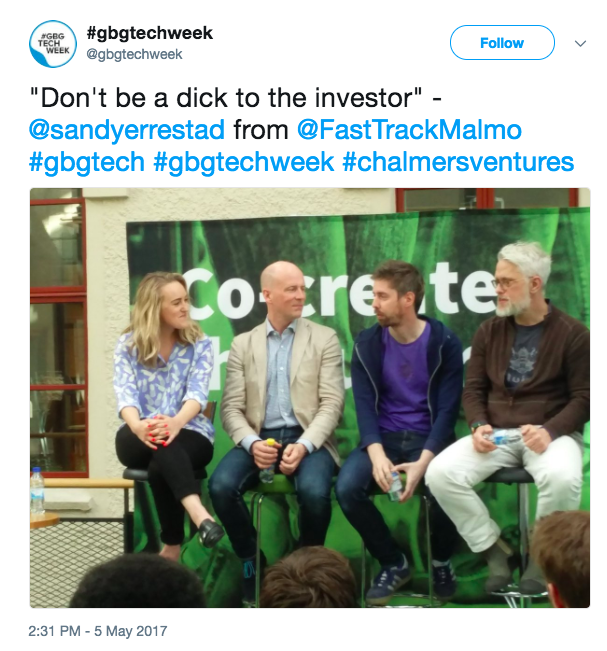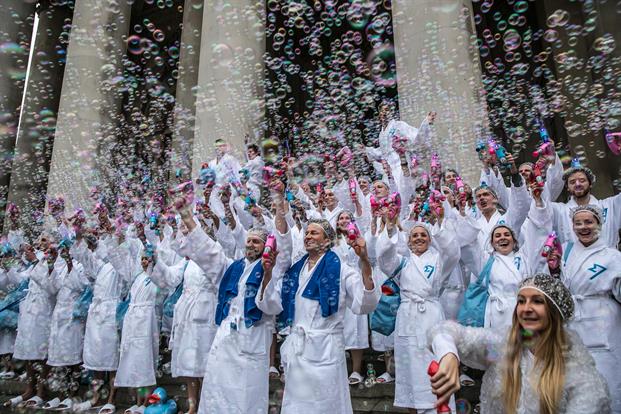There are still four weeks left to the holidays, but I've already started thinking about 2017, all the curveballs it's thrown and all the greatness it's brought. I do feel like every year is sort of monumental in the things they offer (last year - was made redundant twice, Brexit, moved to Sweden after eight years abroad.. etc), but looking back at this year I can see three distinct changes I have pursued as part of my every-day life that have made my life disproportionately better.
Here's what.
Digital purge
I unfollowed more than 800 influencers, acquaintances and even friends on Instagram. I stopped reading the lifestyle blogs I’d been following for years. I deactivated notifications on Facebook. I bought an alarm clock and kicked my phone out of the bedroom (until I started using Natural Cycles and had to bring it back in again...).
The intended goal was to make my world bigger, by making it smaller. To see and appreciate what’s in front of me, as opposed to on a screen. That’s partly succeeded, but what’s also happened is that I’ve started working a lot more. The time I used to spend on the internet I now spend working, so if I hoped to relax more - and I’m not sure I did - that certainly didn’t happen.
I do, however, think more about what I have and how I can improve, instead of thinking of what I don’t have, which is what I did when I was constantly bombarded with other people’s seemingly perfect lives. I’ve slashed my time on Facebook by about 70%, only from deactivating notifications. And I think a lot less about conspicuous spending now that I don’t read blogs. This, in turn, means that I spend a lot less money overall - both because I work more so I simply don’t have the time to spend, and because I’m not exposed to content on blogs and social media that encourages me to spend.
Public speaking
I never really thought public speaking was for me - it hadn’t even crossed my mind until I was asked to do a talk earlier this year. Public speaking always seemed fun but I don’t think I thought I’d have anything to say. Pretty strange coming from a PR, I know, but my job is to train other people on what to say - not to get up on the soap box myself. Coaching others is very different from coaching yourself, so I started watching a lot of talks - both online and offline - to see exactly what a good talk is, how they’re structured, what works and what doesn’t.
My first public talk was at Media Evolution with some 60 people in the audience. Titled “Cowboys and KPIs - confessions of a PR”, it covered my trip to SXSW and how PRs can navigate around the difficulties of establishing KPIs when it comes to a place like SXSW. Since then I’ve done panel discussions at Gothenburg Tech Week, Think Accelerate and Fast Track Malmö, I’ve participated in a podcast on startup PR, I’ve hosted workshops at Fast Track Malmö, and I’m doing two talks in December, one at Sony Mobile on what corporates can learn from startup PR, and one at Minc on what startups can do in terms of PR during their first two years as a business. I also recently secured my first ever paid (!) talk, which is both exciting and encouraging - not for the money itself, but for the fact that in less than a year I’ve gone from never having done a talk, to my talks having an actual market value (!).
I hope to do a lot more public speaking in 2018. Since I usually talk about my work in startup PR, doing public talks forces me to take a step back and challenge myself, how I communicate and how I work with PR. It’s a win-win for me, my employer, my clients, and - hopefully - the people attending the talk.
Me being eloquent as ever, at GBGTechWeek
Side projects
I went to a conference in August this year where one of the speakers said that “the Mona-Lisa was a side project, what will be yours?” and all I could think at the time was FU, I’m stressed as is? It did, however, plant a seed, and since then I’ve MVP’d (ish, I never took it to market) one project and I’m currently tinkering with another. I’ve also stepped up freelancing, set up my own consultancy and worked on two big freelance PR announcements, one of which was international. They’re, by far, the biggest announcements I’ve done as a one-man band and I’m still a bit flabbergasted by the phenomenal results (though I did have my mentor on speed dial, for which I am forever grateful).
One thing I’ve learnt over the years is that the more idle time I have, the more time I have to wallow. It's borderline destructive and definitely distracting, and more than anything, it serves zero purpose. Side projects to the rescue - it doesn't have to be setting up a new business or launching something huge, just doing something like tennis once a week - and actually committing to it - is enough to keep your mind occupied.
Tennis Thursdays - new tradition as of August 2017
2017 has been my best year to date, for plenty of reasons. I'm slightly concerned I'll want to scale up even more and add on just as much more in 2018, which - simply put - won't be possible. That said, doing more forces you to sharpen the way you think, act, even speak. It's a never-ending learning curve, and I love it.









